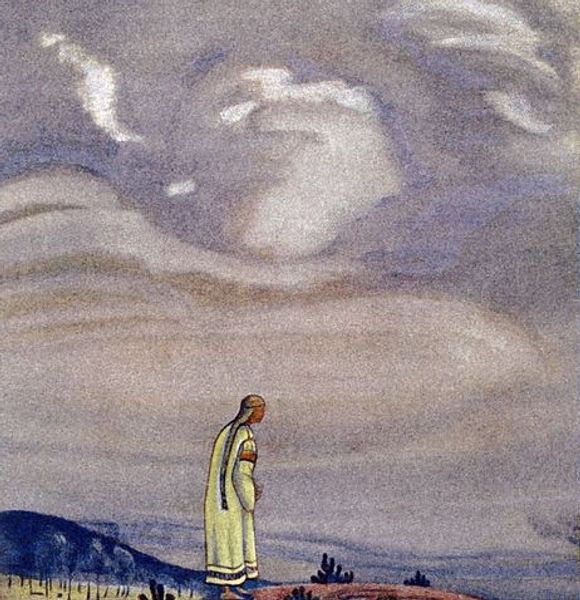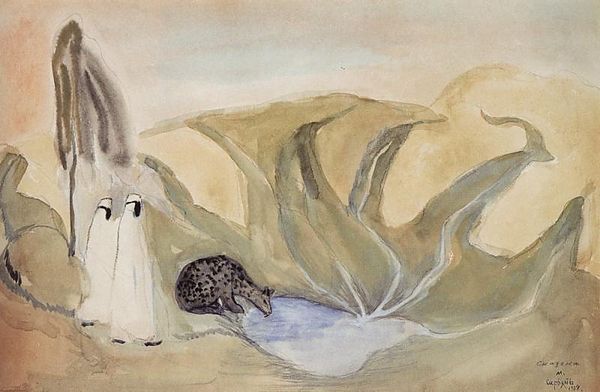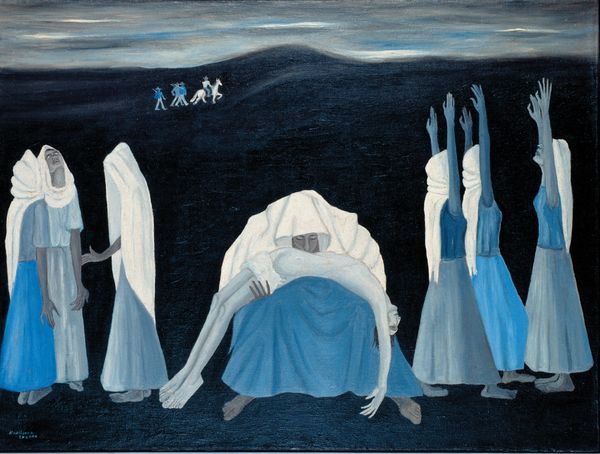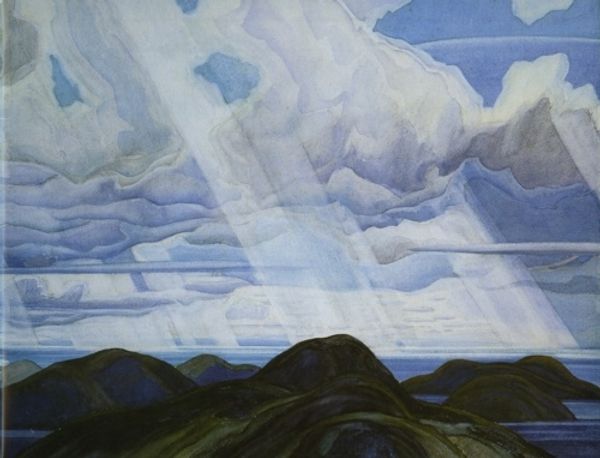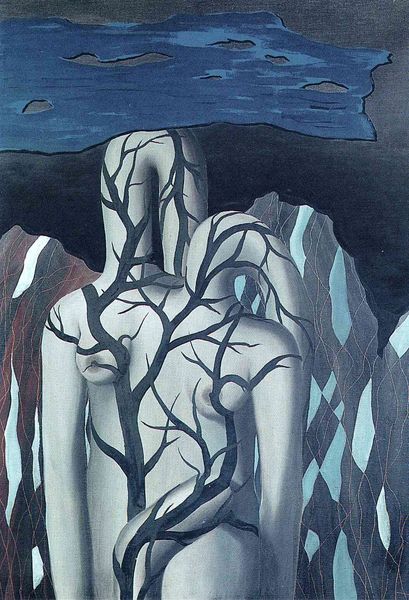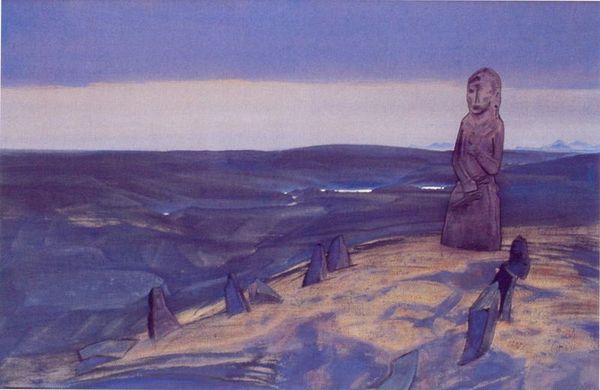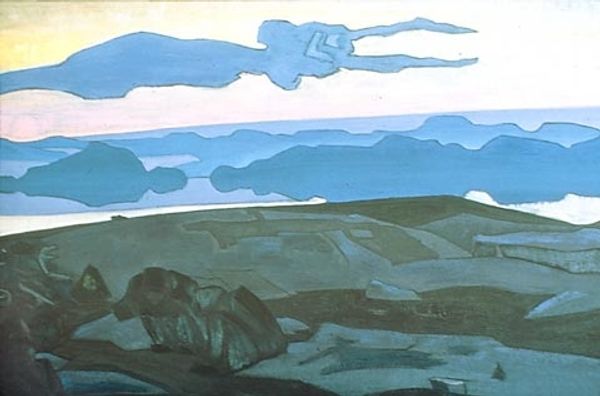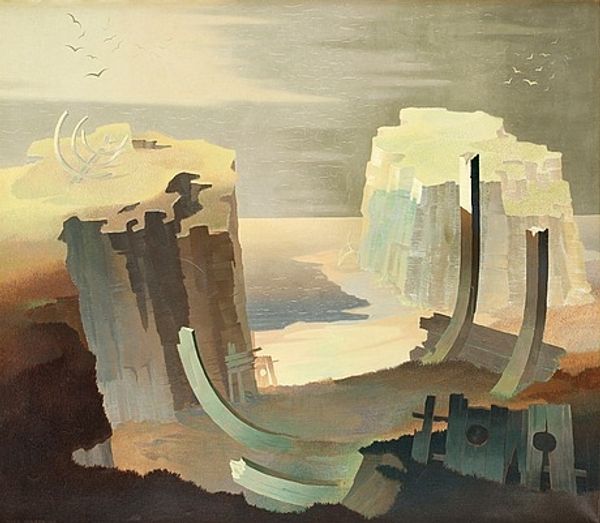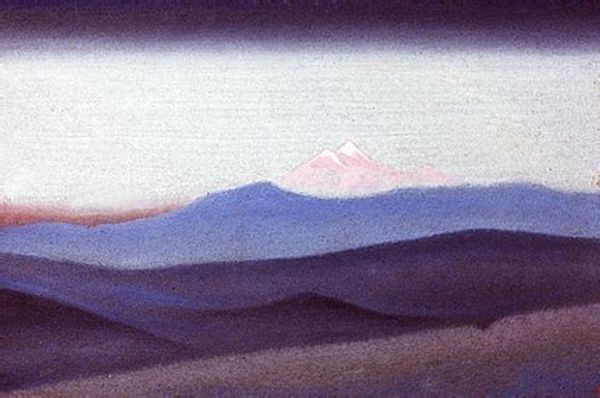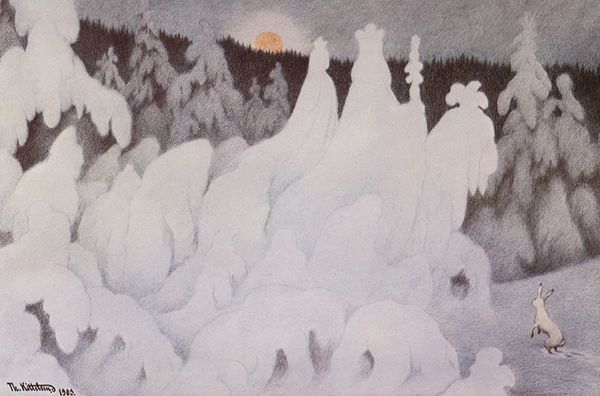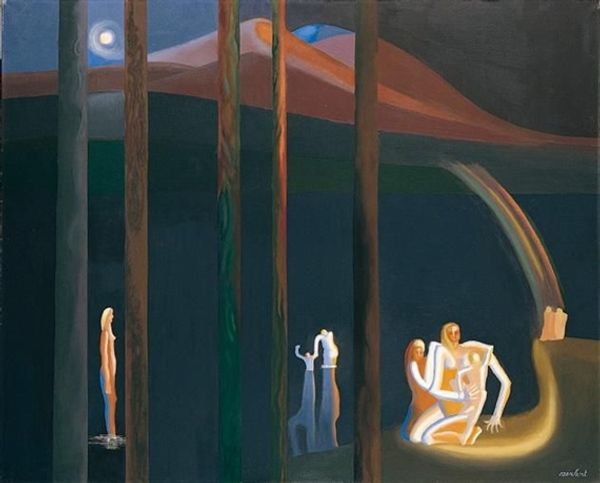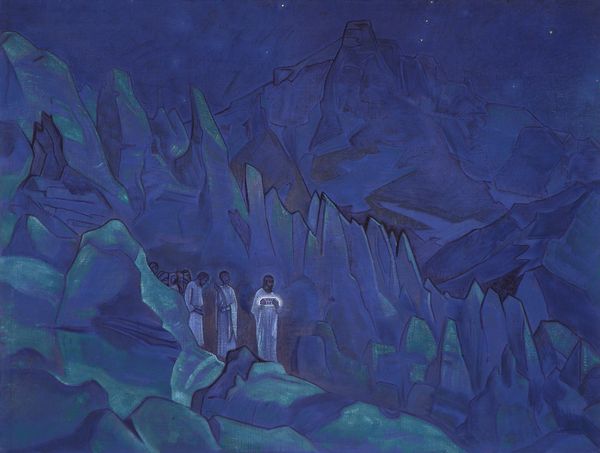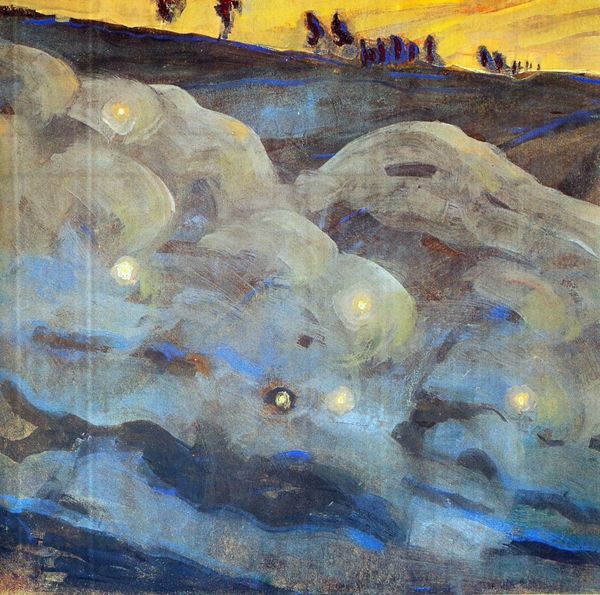
painting, oil-paint
#
narrative-art
#
painting
#
oil-paint
#
landscape
#
fantasy-art
#
figuration
#
oil painting
#
folk-art
#
history-painting
Copyright: Public domain
Horace Pippin painted "The Temptation of Saint Anthony" around 1946, and what grabs me first is the way he builds up this strange, dreamlike space with such simple, direct marks. The palette is muted – greys, whites, blacks – but then these pops of white daisy like flowers and the sunset give a strange feeling of hope and decay. Look how Pippin renders the wall that dominates the centre of the painting. Each stroke is visible, each pillar slightly different. There’s something so matter-of-fact about this way of painting, like he’s not trying to hide the work involved. He is just describing what is in front of him. It reminds me of some of Guston’s later paintings, where the forms are so clear and immediate, but loaded with symbolic potential. Both are like a conversation, they embrace ambiguity, and allow for multiple interpretations.
Comments
No comments
Be the first to comment and join the conversation on the ultimate creative platform.
